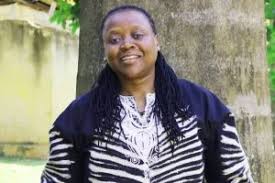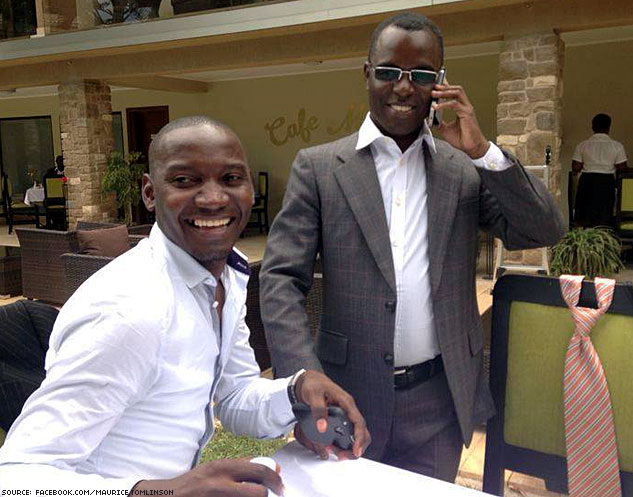Gay activists appeal for formal Uganda recognition
Kikonyogo Kivumbi is the executive director of the Uganda Health…
Gay rights activists in Uganda have resolved to push on with a court case challenging Uganda government refusal to register their network, Sexual Minorities Uganda (SMUG).
By Kikonyogo Kivumbi

In a meeting Friday, Aug. 23, in Kampala, the activists stated that the actions of Uganda Registration Services Bureau (URSB) to deny registering SMUG as a non-profit organization violates their freedom and the right to assembly and association.
In September 2018, they filled an appeal of a High Court judgment that dismissed the SMUG application.
Three activists — Frank Mugisha, Denis Wamala and Ssenfuka Warry — filed a suit in 2016 in Uganda’s High Court challenging the refusal of URSB to register SMUG.
In a ruling dated June 27, 2018, High Court judge Basaza Wasswa dismissed the activists’ application and ordered them to pay URSB’s costs.

“It is highly uncommon for a court to award costs in public interest litigation,” Justine Balya, an officer with Human Rights Awareness and Promotion Forum (HRAPF), told the Aug. 23 meeting.
She said the language and spirit of the High Court judge in dismissing the application is derogatory.
“The judge believes registering SMUG is immoral,” Balya said.
Dr. Frank Mugisha, the executive director of SMUG, told the meeting that it is important for Ugandan LGBT community allies and friends to take interest in the case.
SMUG through its membership is doing good work that good for the country, he said — “including hard-to-reach populations — and we encourage them to access health services.”
Ssenfuka, one of the applicants, said it was important to appeal the high court ruling because otherwise the precedent set likely would be used to disrupt LGBT work and organizing.
URSB is an autonomous statutory body established by Chapter 210 of the Laws of Uganda in 1998. The Bureau was created to take over the functions of the Registrar General’s Office under the Ministry of Justice and Constitutional Affairs. The Act came into force on Aug. 16, 2004, and the self-accounting status was granted in July 2010. The bureau is governed by the Board of Directors; its Chief Executive Officer is the Registrar General.
The SMUG memorandum contends that:
- The Learned Judge erred in fact and in law when she mis-construed the Constitution of Uganda and law by holding the association for unlawful purposes and practices by LGBTIQ persons is prohibited in Uganda.
- The Learned Judge erred when she speculatively held that the name “Sexual Minorities Uganda” and objectives of of the proposed company were to promote behavior that contravenes section 145 of the Penal Code and Article 31 of the constitution Of Uganda.
- The Learned Justice also erred in law and in fact when she held the inordinate delay by the Respondent to respond to Applicants’ application for reservation of the name “Sexual Minorities Uganda” did not violate article 42 of the Constitution.
- The Learned Judge erred when she awarded costs to the Respondent in an application for enforcement of fundamental rights and freedoms guaranteed under the Constitution.
- The Learned Judge erred when she declined to grant the prayers [submitted] by the Applicants. Justice Patricia Basaza Wasswa erred in her judgment.
Kikonyogo Kivumbi is the executive director of the Uganda Health and Science Press Association.





Denis Wamala is no longer affiliated to Ice breakers Uganda
Thanks. I fixed that (but I don’t have Dennis’s current affiliation). BTW, I inserted that outdated info; not Kikonyogo Kivumbi.
— Colin Stewart, editor/publisher of this blog
So in 2019 LGBTIQ human rights defenders are still called gay activists????????? Thank you Colin for guiding your staff well.
I guess pro-choice are abortionists and transgender people are impersonators? According to the reporting standards?
Anyway, I’m offering your staff free training on how to report LGBTIQ and Key Populations training stories. Lemme know the day and time.
Dear Phyl,
Thanks for caring enough to urge us to do better.
Setting aside sarcasm, the challenge is not a failure to know the best descriptions, but to balance accuracy and brevity while sticking with terminology that readers know well.
Using “LGBTIQ human rights defenders” as the subject in a headline leaves little room for telling readers what the article is about. For example, I invite you to finish rewriting the headline that you hate (“Gay activists appeal for formal Uganda recognition”) without making the headline longer.
That challenge (which you might be able to achieve, but not easily): Try to finish writing an accurate and appealing headline by adding no more than 12 letters to a headline that begins:
“Uganda: LGBTIQ human rights defenders …”
Overall, the second challenge is to use terminology that readers are familiar with.
A Google search for “LGBTIQ human rights defender” reveals that the phrase has been used only 266
times. Readers know what the article is about when we use the roughly but not exactly accurate phrase “gay activist.” A Google search for that produces 525,000 results. (FYI, “LGBT activist” produces 358,000 results and “LGBT rights activist” produces 199,000 — but if I understand you correctly, you object to both the generic word “activist” and to the imprecise “gay” in place of “LGBTIQ”.)
Feel free to continue this conversation, preferably with a constructive tone rather than a snarky one.
Best wishes,
Colin Stewart, editor/publisher of this blog